#Children learn
Text
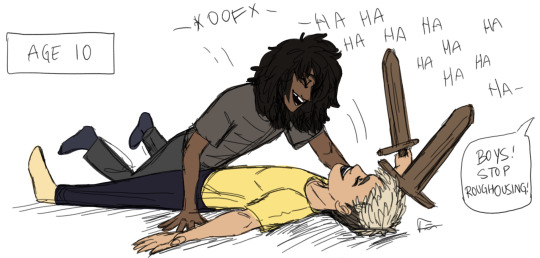

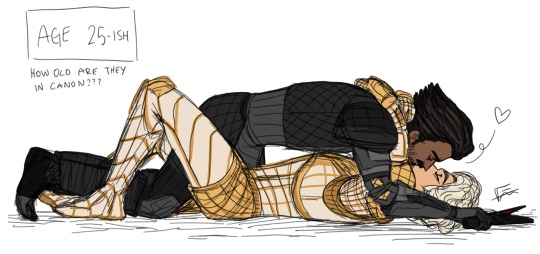
I like to think combat training for these two became more complicated as they got older, if you know what I mean
I colored the last one first and then lowered my standards. give it up for 10yo ambrosius and his glaringly yellow shirt
#also I realized while drawing this that I’ve been making his hair longer than it is in the movie#oh well#nimona#nimona 2023#nimona movie#ballister boldheart#ambrosius goldenloin#ballister x ambrosius#goldenheart#finley cannot draw#I learned that I do not draw children very often#it’s FINEEEEE#anyway. I live for content of the boys in their institute era. mutual pining. sappiness. never being able to tell anyone.#increasingly charged sparring practice#YOU GET IT
24K notes
·
View notes
Text
Boost Your Child’s Self-Confidence with Life Lessons Global

Life Lessons Global is committed to nurturing not just academic success but also the personal development of every child. One of the key aspects of a child's growth is the development of self-confidence. A confident child is more likely to face challenges, take risks, and build positive relationships. In this article, we will explore the strategies employed by Life Lessons Global to boost your child's self-confidence.
Encouraging Individuality:
Life Lessons Global believes in the uniqueness of every child. By fostering an environment that celebrates individuality, children are encouraged to embrace their strengths, interests, and quirks. This acceptance creates a foundation for self-confidence, as children learn that they are valued just as they are.
Positive Reinforcement:
Positive reinforcement is a powerful tool in building confidence. Life Lessons Global emphasizes acknowledging and praising children's efforts and accomplishments, no matter how small. By focusing on the positive, children develop a sense of achievement, reinforcing the belief in their capabilities.
Setting Realistic Goals:
Goal-setting is an essential skill for personal growth. Life Lessons Global guides children in setting realistic and achievable goals. Success in reaching these goals, even if they are incremental, contributes to a child's self-assurance. Learning to overcome challenges and achieve milestones builds a strong foundation for confidence.
Fostering a Growth Mindset:
Life Lessons Global instills a growth mindset in children by teaching them that abilities can be developed through dedication and hard work. This perspective encourages resilience and a positive attitude toward challenges. Children learn that setbacks are opportunities for learning and growth rather than failures.
Effective Communication Skills:
Developing effective communication skills is crucial for self-confidence. Life Lessons Global emphasizes teaching children how to express themselves, articulate their thoughts, and listen actively. Clear communication enables children to convey their ideas and needs, fostering a sense of self-efficacy.
Promoting Leadership Opportunities:
Life Lessons Global provides various leadership opportunities, allowing children to take on responsibilities and make decisions. Being in leadership roles, whether big or small, helps children develop a sense of autonomy and capability, boosting their confidence in their ability to lead and influence positively.
Cultivating a Supportive Community:
Confidence flourishes in a supportive community. Life Lessons Global fosters an inclusive and supportive environment where children feel accepted and encouraged by their peers and mentors. A sense of belonging and positive social interactions contribute significantly to a child's self-esteem.
Conclusion:
Life Lessons Global understands that building self-confidence is a lifelong journey. By nurturing individuality, providing positive reinforcement, encouraging goal-setting, fostering a growth mindset, developing communication skills, promoting leadership opportunities, and cultivating a supportive community, Life Lessons Global equips children with the tools they need to face the world with confidence and resilience. The lessons learned at Life Lessons Global go beyond the classroom, shaping children into confident, capable individuals ready to tackle life's challenges head-on.
1 note
·
View note
Text
Some time ago, in an article on race stereotypes, I read something that stuck in my mind, but that only recently has seemed to have anything to do with children.
The author spent some time in a German concentration camp during the war. He and his fellow prisoners, trying to save both their lives and something of their human dignity, and to resist, despite the impotence, the demands of their jailers, evolved a kind of camp personality as a way of dealing with them. They adopted an air of amiable dullwittedness, of smiling foolishness, of cooperative and willing incompetence - like the good soldier Schweik. Told to do something, they listened attentively, nodded their heads eagerly, and asked questions that showed they had not understood a word of what had been said. When they could not safely do this any longer, they did as far as possible the opposite of what they had been told to do, or did it, but as badly as they dared. They realized that this did not much impede the German war effort, or even the administration of the camp; but it gave them a way of preserving a small part of their integrity in a hopeless situation.
...
Does not something very close to this happen often in school? Children are subject peoples. School for them is a kind of jail. Do they not, to some extent, escape and frustrate the relentless, insatiable pressure of their elders by withdrawing the most intelligent and creative parts of their minds from the scene? Is this not at least a partial explanation of the extraordinary stupidity that otherwise bright children so often show in school? The stubborn and dogged "I don't get it" with which they meet the instructions and explanations of their teachers - may it not be a statement of resistance as well as one of panic and flight?
...
To a very great degree, school is a place where children learn to be stupid. A dismal thought, but hard to escape.
...
Infants are not stupid. Children of one, two, or even three throw the whole of themselves into everything they do. They embrace life, and devour it; it is why they learn so fast, and are such good company. Listlessness, boredom, apathy - these all come later. Children come to school curious; within a few years most of that curiosity is dead, or at least silent.
How Children Fail by John Holt
Part 4: How Schools Fail
#John holt#holt#how schools fail#how children fail#children#child#kid#kids#infants#stupid#bored#boredom#apathy#curious#school#schools#public school#public schools#children learn#jail#school is jail#intelligent#creative#mind#minds#stupidity#bright children#teachers#resistance#panic
1 note
·
View note
Text
When you call "influencers" what they are, freelance marketers, it makes the phrase "mommy/family influencer" sound just as dark as it is in reality.
They are using their children to sell you things. Some of these people intentionally have children solely in order to use them as marketing devices.
They aren't harmless or wholesome. They are expanding and normalizing new and different forms of familial abuse to a worldwide audience
#did we learn nothing from jon and kate plus eight??#like watching someone use a tv show to turn her children against their other parent#and then institutionalized and completely abandonded a child for being inconvenient#but no. we had to bring it back en masse
32K notes
·
View notes
Text
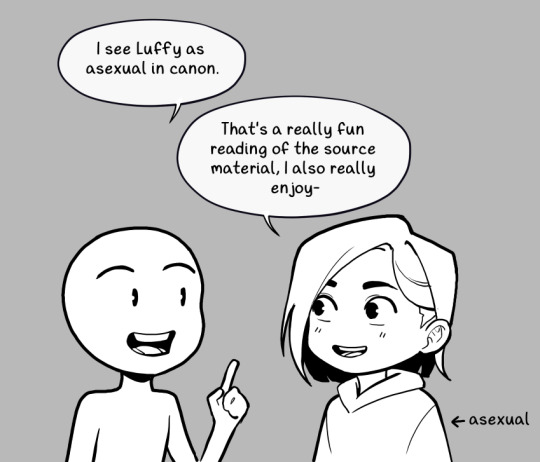


of all the good reasons to have an ace headcanon for him, why would you land on this
#not maintagging this#and I wish I could say this was a singular instance#but sadly it isn't#people can be uninterested in sex without being reduced to children or having their intelligence insulted#not even mentioning that a-spectrum experience is so varied in general#the two sides of terrible asexual generalisation: unfeeling robots and children#if you say someone is too dumb or emotionally immature to understand sex#you imply that if they just grew up a little or learned a bit more they would change their mind#ace people get that kind of patronising enough we don't need the call to come from inside the house as well
1K notes
·
View notes
Text
Prompt 131
Okay, so first of all Dan would like to say it’s not his fault. Ellie was the one to bring some unknown object into the speeder and Jazz was the one driving. Or had Sam been driving- didn’t matter! It wasn’t his fault, he wasn’t the one shooting at them, he wasn’t the one to break whatever, he was not the one to open a stupid portal, and so it wasn’t his fault!
So why is he now like, five years old, and why is the speeder crashed in some sort of corn field. Why is everyone- except for Jazz whose now like six- also like three at most?! And- oh fuck the door just opened and… okay that’s a kid. Like, nine at most.
A kid and an adult, who he hadn’t noticed at first so again, it’s not his fault if he hissed at them and tried to hide his not-siblings behind him. It’s also not fair they’re apparently stuck to ghost speak for who knows how long, but at least they can understand the people.
“Martha, get some blankets, it’s happened again!”
#dcxdp#dpxdc#prompts#What is up with the Kents cornfield that a spaceship with alien children has crashed there twice#Clark: Omg am I an older brother now?? What does an older brother do??#He's going to be so excited when the kids start flying too#Clark: I have eight whole siblings now!#The Kents will end up the most experienced couple in raising superpowered children#Clark: This is Jazz and Dan and Tucker and Danny and Sam and Valerie and Ellie and I love them#The Kents now have two ships hidden on their property lol#and a green glowing dog of some sort that came with one group#the phamily actually get to be kids and don't Have to be vigilantes or are parentified or anything and it's... actually kind of nice#It's peaceful#Ellie definitely doesn't hide the fact she's a clone#They're very limited when re-learning how to talk human language again#so they say some rather concerning things without giving any context for it#not that it isn't concerning even with context anyway lol#Ma and Pa kent nearly cry when they hesitantly ask if their names can be kent too#Clark cries when he goes to metropolis because the kids all cling and try to get him to stay
1K notes
·
View notes
Text
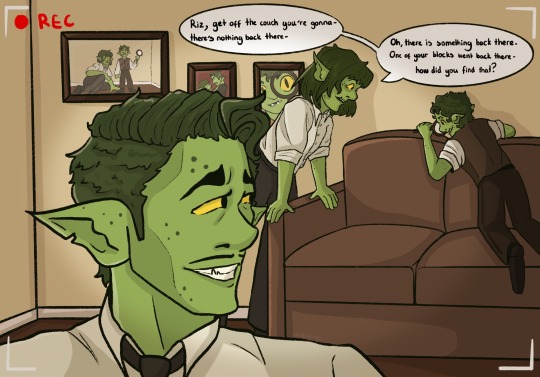
so normal about them (will cry if I think about them a bit too much)
#dimension 20#fantasy high#d20 fantasy high#d20 fanart#riz gukgak#sklonda gukgak#pok gukgak#I can’t draw children I have learned
565 notes
·
View notes
Text
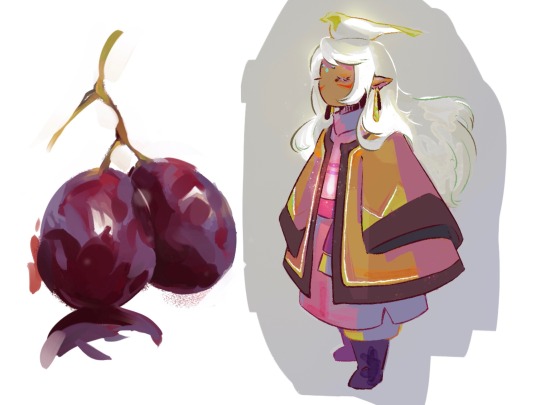
#February is for learning how to use csp PROPERLY this time lol#96% CSP#all the fancy blending and mixing is fun but also confusing for a simple procreate enjoyer#anyway it's been a while since i made fanart so i don't have much to post here#i hope you'll accept my humble doodles#for the time being anyway#sky 星を紡ぐ子どもたち#sky children of the light#sky cotl#sky fanart#fanart#nedeii sky#thatskygame#skyblr#ファンアート#thatgamecompany#been thinking about making a separate tumblr for my practice paintings and other stuff that i don't think suits this place#we'll see we'll see
600 notes
·
View notes
Text
Steve comes home from work early one day to see that not only is his kindergartener, Hazel, home from school (which is normal), his third grader, Robbie, is also home (which, seeing as there are still several hours until when her school bus would usually be dropping her off, is not normal).
Steve: Oh, Jesus.
Steve: What’d you do?
Robbie: *no response*
Eddie, prodding his daughter: Explain.
Eddie: Own your shit, girlie.
Robbie: *continues to silently fume on the couch*
Eddie: Fine.
Eddie: When I picked up Hazel, the principal made me take her home too after what was described to me as a relentless verbal onslaught against – wait for it –
Eddie: A first grader.
Steve, baffled: Robbie – what the fuck?
Robbie: *positively massive eye roll*
Robbie: She was being mean to Hazel.
Robbie: All I did was tell her that if she messes with Hazel, then I’m messing with her.
Steve: *long, tired sigh*
Steve: I just…
Steve: Robbie – you pushed Hazel down the stairs yesterday.
Steve: On purpose.
Steve: For my sake, just pick a side.
#no lessons were learned here#only-children steve and eddie are doomed to never understand the sibling dynamics that come innately to their children#yesterday's post was such a bummer here's some shenanigans for a palate refresh#steddie#liv’s steddie dads verse#steddie dads#steve harrington#eddie munson
483 notes
·
View notes
Text
I’ve seen people talk about the main theme of the owl house being acceptance, and I think they’re completely right about that. But I haven’t really seen anyone look at the sub themes depicted in the show around the acceptance theme.
Specifically how the owl house is really advocating for child autonomy. Specifically in the ways of discipline, showing that communicating and talking with children ends up being a lot more beneficial and effective than punishing them.
The most obvious example comes with the collector, where instead of talking to him, King’s dad punished the kid by putting him in essentially time out, for the actions of his siblings. Which he would’ve learned if he had talked to the collector. And then following that, every interaction before talking with Luz, has the collector being used or placated in some way instead of being treated like an actual child due to the amount of power he has. The titan trappers revering him as some sort of god, Belos manipulating him, and even king attempting to appease the collector, instead of really talking to him. Though for king it’s a bit more understandable. Even so, the show showcases the collector’s change only after he’s talked to like a person, and then shown why his views were wrong.
Luz, who’s the main focus of the show, has her character arc and journey centered around being punished for her not fitting in at school. And while, yes, some of Luz’s antics that were shown seemed to be legitimately dangerous, the real solution would’ve been to talk with her and teach her about safety and why bringing wild animals and fireworks into a school building is dangerous. It should have also been that Luz should be able to talk and negotiate with her teacher about what would be acceptable for her projects with her endless creativity. The solution was not to essentially punish Luz for being creative, and what that only did was make her feel worse about herself and more isolated from the people she thought would be on her side. And then we were shown in thanks to them and for the future, Camilla’s growth into understanding that not talking to Luz about this, and essentially forcing her into normality, was not the way to go about things.
And we see this theme again, with Willow forced into the abomination track because her parent’s thought that was what was best for her, until she was able to showcase her skills and switch to what she was actually good at. Alador realizing he missed a lot of Amity’s growth by not talking to her, and then making it up to Amity by letting her set the boundaries and reestablishing their relationship. Odalia being controlling and not listening to her children which lead to actively harming their social development, until she was confronted and then shut out. Belos manipulating Hunter, isolating him, and abusing him, not even listening to what he had to say. And all of these situations were made better and more bearable when they were given the chance to take charge and be heard.
All this, in an attempt to showcase that children can be vulnerable and malleable, but they are also smart and understanding. And instead of deciding what a child needs, it’s important to communicate with the child instead, asking what they need and listening to what they’re saying. And implementing that by guiding and supporting them, not attempting to control them to what someone else thinks is right.
Children are smart and observant, they just need to be taught how to communicate, and viewed and thought of as actual human beings.
In a way, the owl house is attempting to advocate for it’s audience, and that’s beautiful.
#the owl house#toh#toh spoilers#toh season finale#luz nozeda#toh hunter#willow park#amity blight#child autonomy#honestly i think it's a really important thing to be taught to everyone at every age#Children are seen as dumb and it's disheartening because they're not#they're open to new ideas and possibilities and not yet stifled by their own learned w-orld veiw#and they don't know everything so that's why they need to be taught#refusing to teach them ultimately takes away any chance of growth#no kid is a lost cause#and kids can understand when something is wrong#ignoring them looses the chance for the kid to learn how to understand and indepen-dently come up with a solution later#toh meta
2K notes
·
View notes
Text
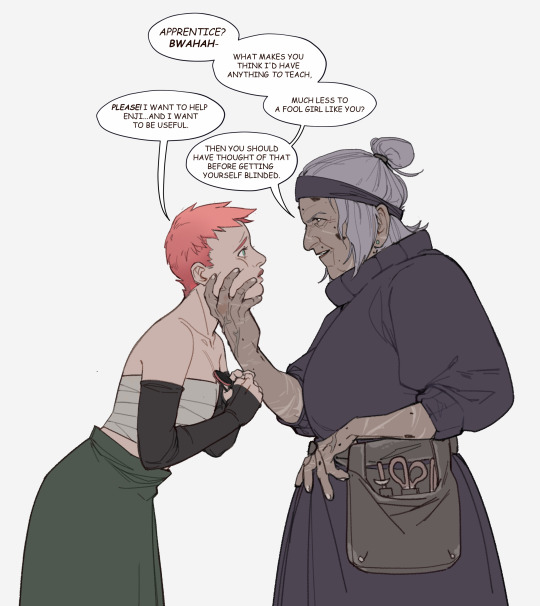
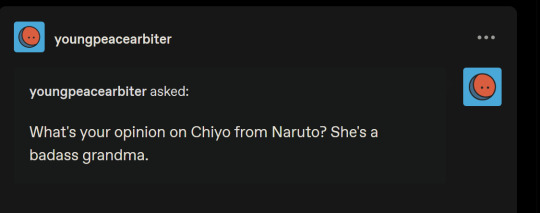
I love Chiyo- and I kind of headcanon her as a Witch of the Woods (Sands???) archetype- a bitter old woman who has sacrificed too much, experienced and committed more atrocities than anyone can imagine, and who knows the truth about what lies in the hearts of men to live among the villages anymore.
In my AU she's got a pretty dark backstory. Back in time when Villages were just getting established, women weren't allowed to be shinobi in the same capacity as men. There was too much warring and death among the clans to risk women, so they were only ever allowed to serve as spies or medics. (Chiyo started off as a medic).
And like any military/fascist dictatorship, serving the state was more important than anything else- so women who were kunoichi were given missions to steal and return with powerful bloodlines. Even before villages, this was a common fear among clans (which is why so many of them have protective measures and inbreed/arrange matches very carefully).
Chiyo was one such woman, who took a X-rated mission in her youth because she was told it would 'serve her nation'. There was a powerful bloodline whose Kekkei Genkai could harden sand to something akin to Steel- something Suna very desperately wanted.
Chiyo succeeded in her mission, but despite the veneer of 'serving your nation', when she returned, she was considered, in her words, "Just another whore."
Then when her son didn't manifest the bloodline- it was worse, but Chiyo was happy because that meant her son was HERS. (This is when she met Enji, and he saved her son's life at great cost- so Chiyo owes him a blood/life debt.)
Then the war came, and they needed women to fight so now serving the nation meant something different, and Chiyo became a full fledged 'shinobi' and turned her healing towards poison and death- especially when she had to fight the Salamander.
Then she sealed Gaara and that was the atrocity straw that broke the camel's back and she dipped out Suna and retired to an oasis. She's still a healer, but adamantly refuses to serve shinobi.
Once again, thank you so much for these asks and all the support for this AU?
@youngpeacearbiter
#naruto#haruno sakura#granny chiyo#coven!sakura#nations always celebrate serving the military but no support for anyone who comes back#veteran's aid? what's that and we all know how they would see women like this#there's no more xrated missions in villages and its like a shameful secret they all gloss over#you never air the dirt out when you've gotta indoctrinate your next wave of children into child soldiers#also chiyo is a pretty cruel woman IMO#first thing she did when she learned Sakura stepped between two attacks was to laugh so hard she started crying#Chiyo has both HEAVY internalized mysogyny but also really wants to protect women- its a balancing act#queen of tough love throw em in the deep end no floaties#trial by firing squad#also chiyo just HATES the hypocrisy of being venerated as a war hero when its convenient for the nation- she just hates shinobi villages#thank u kishimoto for keeping Chiyo's backstory vague as hell so i can play#chiyo as an embodiment of female rage
325 notes
·
View notes
Text
i <3 bottle episodes. bottle episodes are so important <333 they have never let me down. a real true bottle episode can fix so many negatives from a show, i don't even care what else is wrong. if they can set down their plots for the episode and gather around for what really matters: worsties getting stuck in an elevator and/or a pregnant character stuck with another character who was very unlikely to deliver their baby prior to the bottle episode....... that's what i'm talking about!!!!! live laugh bottle episode <3
#worsties in this case are a starship captain with anxiety and several crying children#why did no one tell me tng had a stuck in elevator moment#that should have been the first thing i learned about JL
278 notes
·
View notes
Text
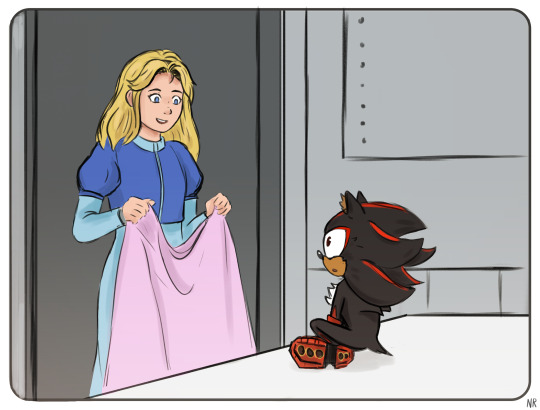

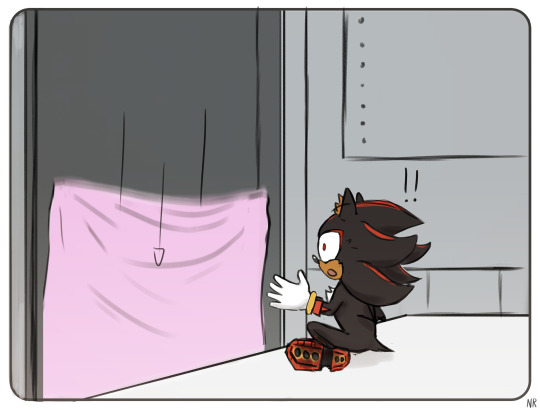

silly kids
#shadow the hedgehog#maria robotnik#sonic the hedgehog#sth#hes learning#they are just children! how could it end so badly! :(#i spend too long on this dumb thing to not post it#shadow#idk if its been done before if so. sorry#sketch#comic#sorry for all the random sonic doodles#i watched way too many lore videos#NRart
400 notes
·
View notes
Text
The reason I love Migi to Dali so much is because at first you think these kids are going to be cunning geniuses because of the shit they pull off...
But they're actually the dumbest kids on the fucking planet. They're only smart when it comes to making plans to fool others. They named their persona "Hitori" as in "one person." They can't do basic math. Migi can't recognize Dali when he's in a wig and a girl's uniform, even though THEY'RE FUCKING TWINS! They can't comprehend that their new mother wears wigs. They're so stupid and unhinged, and I love them so much.
#migi and dali#migi to dali#new favorite show of the season#i realize they were probably left to fend for themselves as children so they wouldn't know certain stuff you learn in school#but the point still stands
830 notes
·
View notes
Text


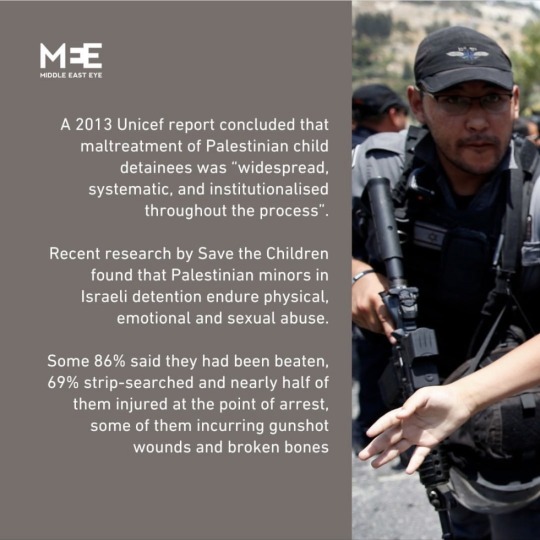





middleeasteye
#something also interesting from their post is about how underreported the Palestinian children hostages taken by Israel are compared to the#coverage the Israeli child hostages taken by Hamas get#the numbers have never been comparable#but I just really liked this post from middleeasteye and wanted to share#since learning about the Palestinian children hostages and what they are enduring before their release is important#palestine#🦢
526 notes
·
View notes